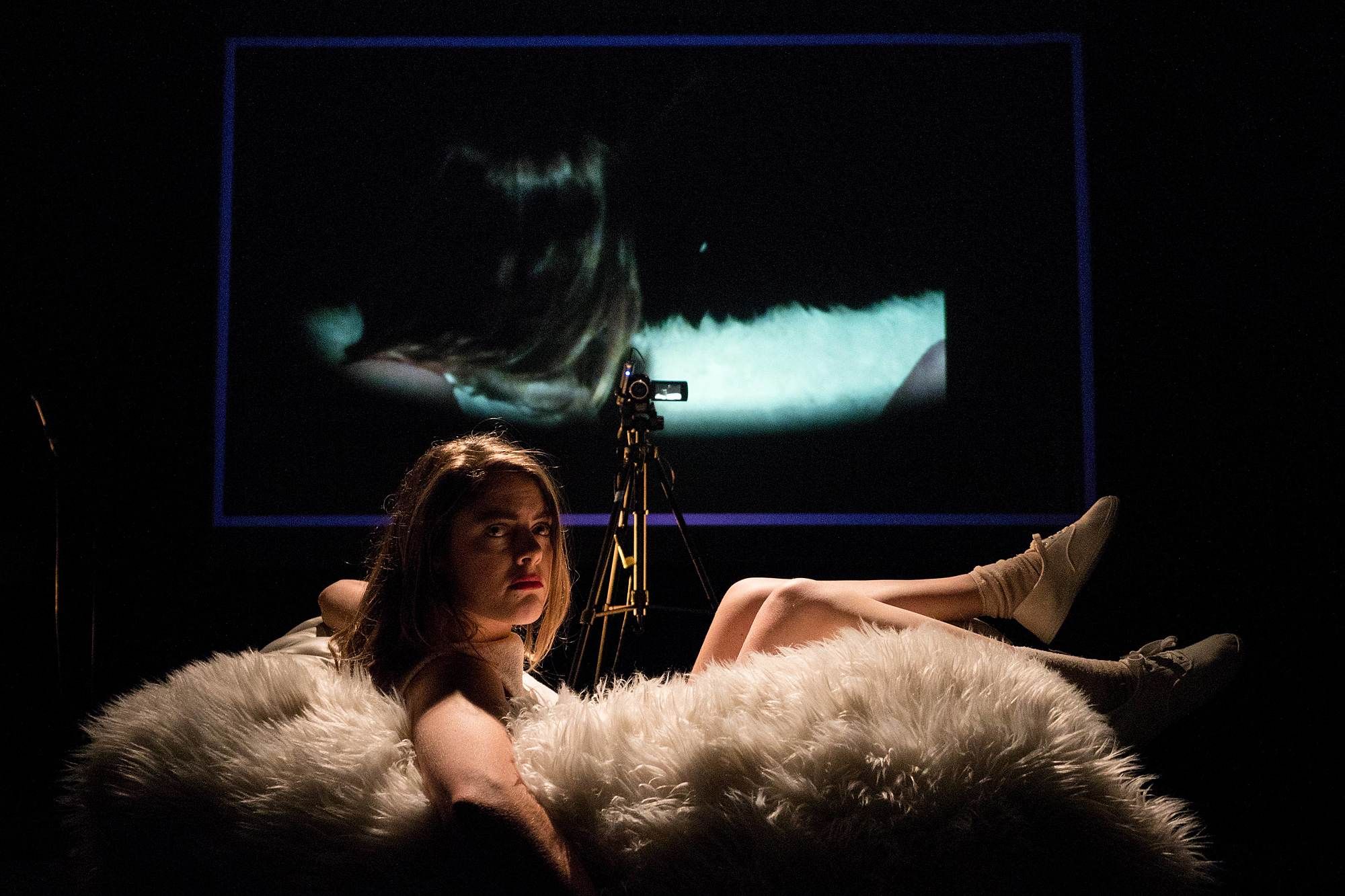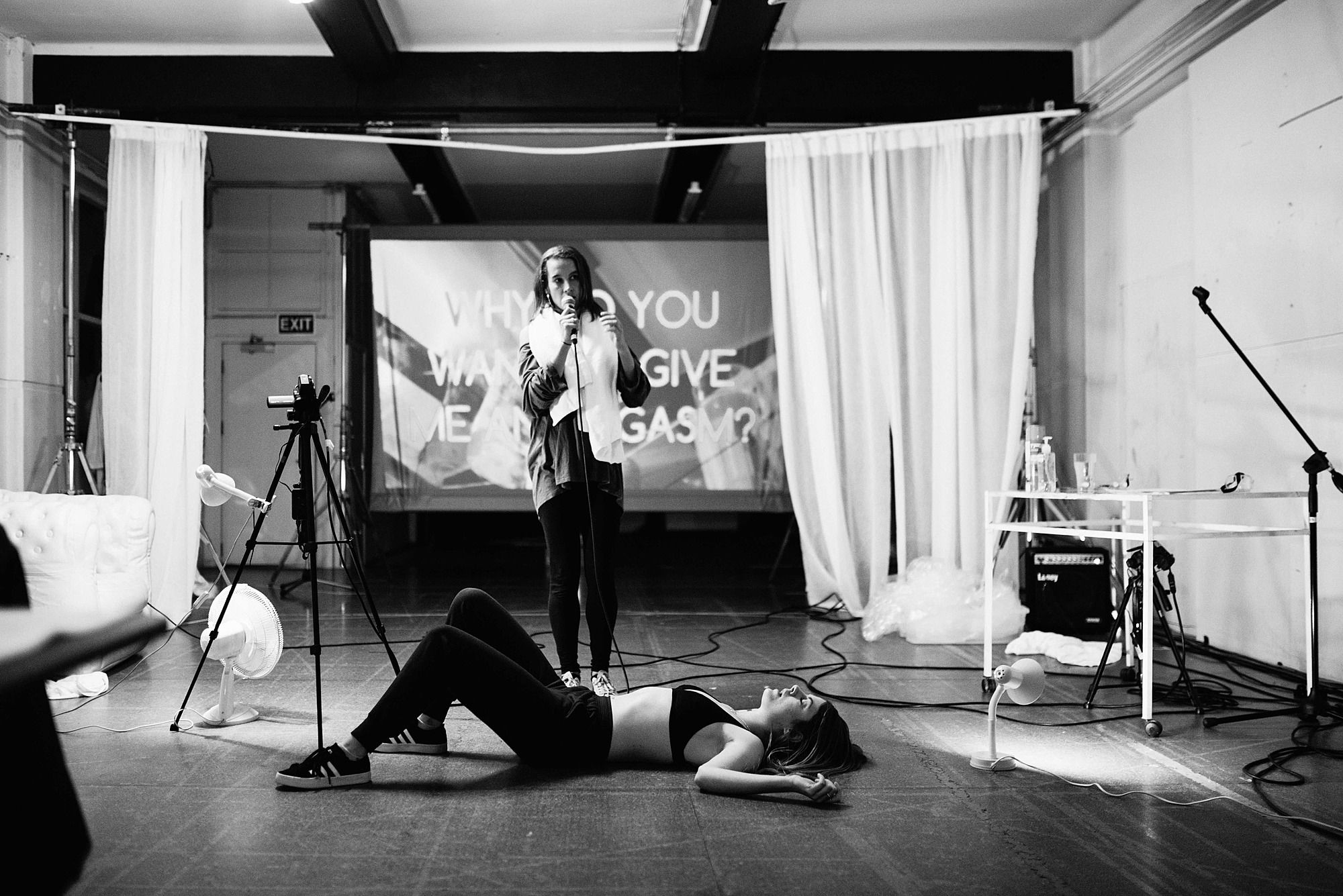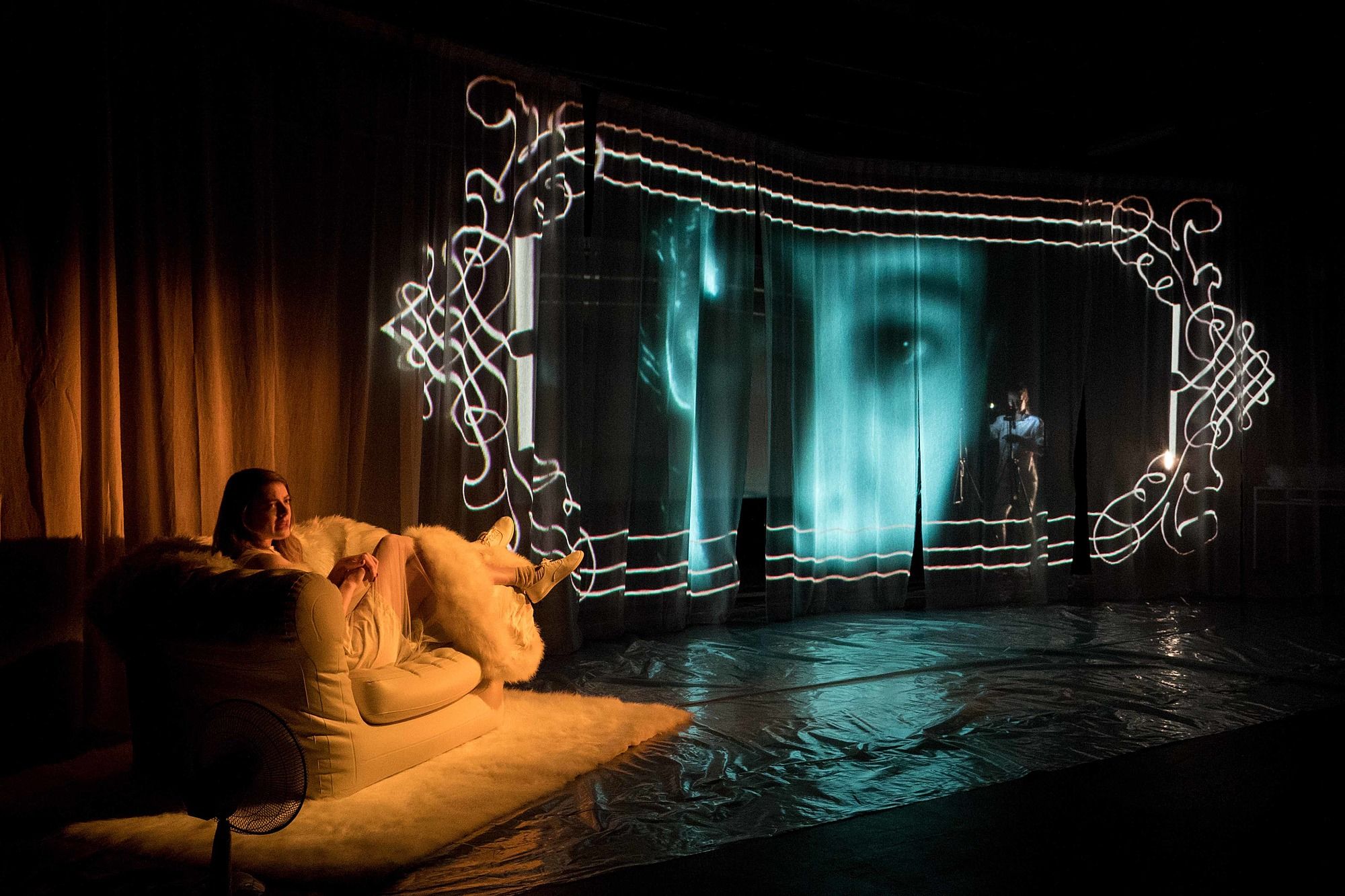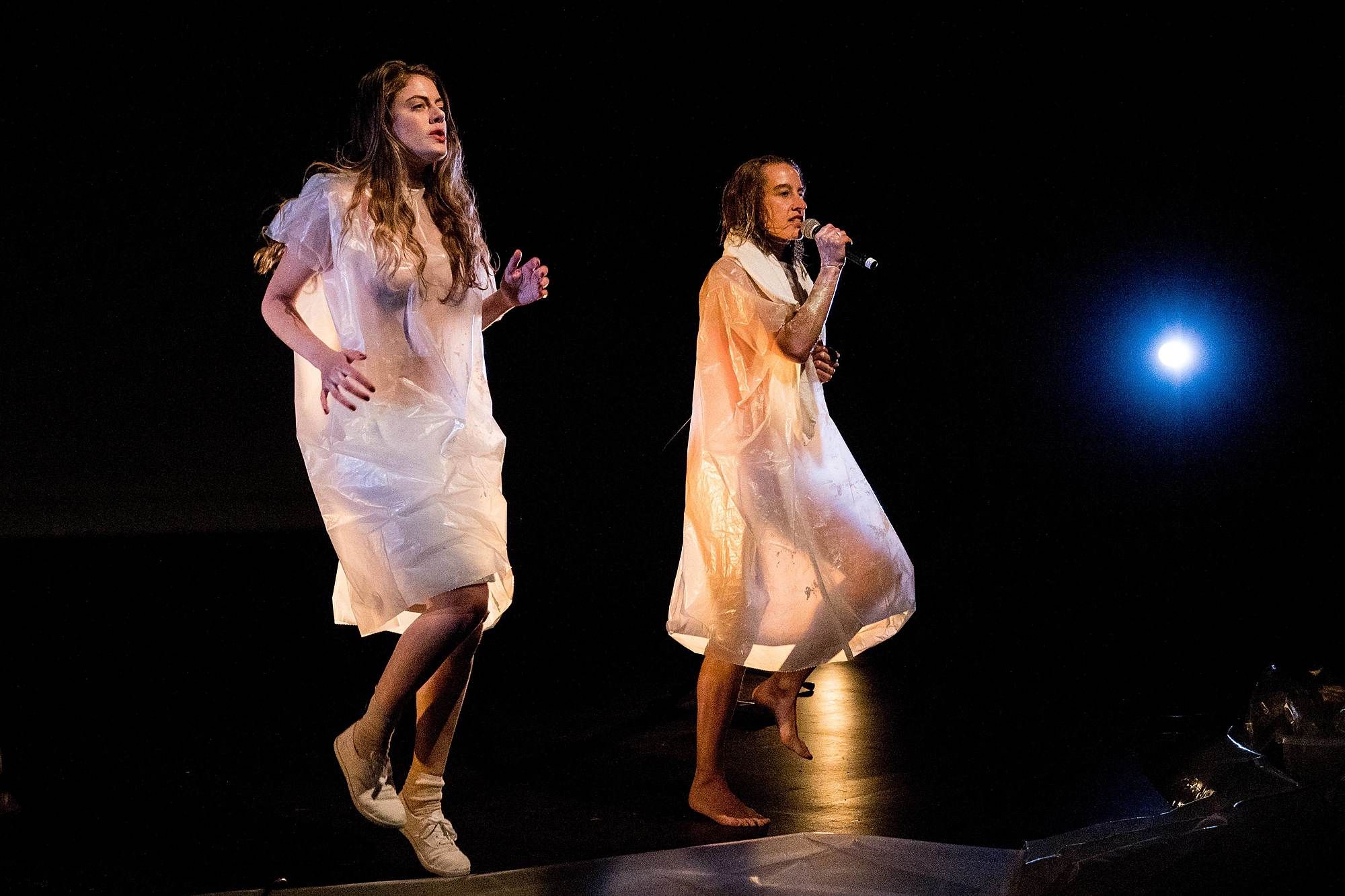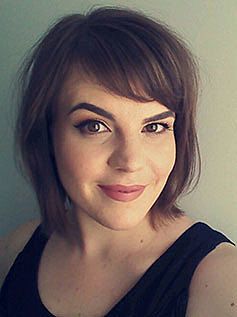The Viewer and the Viewed: Sex and Desire in Body Double
Hannah Banks sifts through the layers of Body Double
Following a sell-out season at BATS Theatre last November, Body Double opened last night in Auckland as part of Silo Theatre's offering in the Auckland Arts Festival. In this essay which also appears in the Silo Theatre programme, Hannah Banks sifts through the layers of the new work from feminist theatre makers Eleanor Bishop, Julia Croft and Karin McCracken.
As an naive eight year old, I thought Rose and Jack in Titanic were the greatest love story of all time. I would dance around the lounge singing to Céline Dion, truly believing in ‘The Power of Love’ and I desperately wanted to be the ingénue Christine in The Phantom of the Opera (even though I suspected it would be so much more fun playing the Phantom). I grew up on a diet of Disney and Broadway musicals, always trying to insert myself into the expectations of my gender. Yet once I reached high school, I realised that the reality was much messier, more confusing, and life was nothing like 10 Things I Hate About You.
So many of the narratives we are fed through cinema, television, music and canonical literature rely on entrenched gender roles. They present women as passive: their desire isn’t important; they are secondary characters; the plot happens to them. In Body Double, creators Eleanor Bishop, Julia Croft and Karin McCracken seek to offer a counter-narrative, an alternative script to that which we’ve consumed our whole lives.
About a year ago, director Eleanor Bishop spent a summer in New York. She’d just turned 30 and was doing a lot of Tinder-ing, thinking about The Dickonomics of Tinder and noticing that none of her experiences fit any of the scripts she knew. She was also interviewing young women about their sexual awakenings for a show she was making. “I became angry” she says, “at how our own desire and pleasure was not prioritised in our education, upbringings, and popular culture.” Instead, it felt like the world had taught women to be desired, to be deferential, to exist for somebody else, rather than themselves. Performer Julia Croft says, “The older I get the more I think it’s important to critically examine our sexuality and sexual relationships through the lens of the wider gendered power relationships in the world. I used to conceive of sex as something that is separate from those things – but it isn't. These things are all so deeply intertwined.”
With these thoughts raging, Eleanor Bishop, Julia Croft, and Karin McCracken came together to conceive a show which might interrogate these issues. Drawing on a range of reference points from Tolstoy’s Anna Karenina to saccharine romantic comedy The Notebook, Body Double explores the complexities and multiplicities of female desire and sex by enacting autobiographical memories and fantasies, tearing down the way female desire is portrayed in the media. Playing themselves and using live footage projected on various screens, Karin and Julia are our guides into a layered, mediated odyssey of desire as constructed by the viewer and the viewed.
Body Double is lots of things; a wink at other women, a quiet grieving, a raging scream, and a belly laugh at the absurdity of it all
In a #MeToo and Time’s Up world, as silences are being broken all around the globe, Body Double challenges its audience to re-examine the expectations that we’ve all been shaped by. “We've been marinated in content about how women and men should engage in sex our whole lives” Karin laments, “Body Double is lots of things; a wink at other women, a quiet grieving, a raging scream, and a belly laugh at the absurdity of it all. Any one of those things feel special to me. Having them all together feels full.” Even now, sex and desire from a woman’s perspective rarely takes centre stage – especially not on a mainstage – and when it does, it’s an important reminder that you’re not alone.
One of the absurdities of growing up as a woman within structures created by men is a lack of positive and empowered sex education for young women. We’ve all had that embarrassed teacher talking about condoms, wielding terrifying diagrams of reproductive systems. While sex education is slowly, thankfully changing in curriculums and some schools focus on inclusivity, relationships, and consent, for so many of us, we still have the bad music videos about STIs ringing in our ears. When programming Body Double, Silo Artistic Director Sophie Roberts was attracted to its focus on sex positivity. “Young women aren’t learning about sex in a way that prioritises them having a positive experience” she says. “It’s either through porn or a ‘don’t get pregnant, don’t get raped’ education, then when you throw into the mix most narratives around romance, no wonder it’s a mess.”
Positive conversations around sex for women is something that performer Karin McCracken understands well through her previous work in sexual violence prevention education. “Lots of that education in schools has been about highlighting that sex should be good for both people” she explains, “I would try and make it a point to talk with young women about desire – trying to foster the impulse to think about what feels good.” Body Double offers a similar opportunity to an audience, giving us a chance to consider and reflect on our own experiences. As Sophie says, “I think conversations around female desire and pleasure that are led by women are essential in our culture.”
Yet the pressure at the core of Body Double is reconciling this empowered conversation with the effect of centuries of patriarchal messaging. The ‘double’ of the title refers to the vacillation between wanting to be both the desired object and the empowered subject of desire. Julia and Karin mine the humour of this paradox; the apparent contradictions of wanting to be a ‘good’ feminist yet also craving ideas of ‘romance’. Ripping open that seam of potential guilt on stage, Julia and Karin exclaim “I want all of the power and I want none of the power.” It’s something which resonates for Sophie. “That frustration of feeling like too much and not enough simultaneously as a woman – that’s something I feel every single day and seeing someone name it on a microphone in a public space makes me feel less shitty.”
That frustration of feeling like too much and not enough simultaneously as a woman – that’s something I feel every single day and seeing someone name it on a microphone in a public space makes me feel less shitty
Julia is fascinated with “trying to unpick what is learnt and therefore what could be re-conceptualised.” If we pull apart the imagery of the dominant culture what spaces does that open for us? Calling herself staunchly feminist, Julia also accepts that she loves the romanticism of Rose getting back on the sinking Titanic “because it was more important for her to spend the next few hours of her life with Jack and then drown, than it was to spend a lifetime without him.” So it’s also probably a “fancy way” she jokes, “of saying I’m still confused.”
Body Double pokes at the male gaze, interrogating images in which women have historically been the bearer of meaning rather than the maker of meaning. By doing so the implicit question becomes: what would a female gaze look like? Transparent creator and director Jill Soloway offers some suggestions, noting that it’s “storytelling to get you on somebody’s side… It’s a wresting away of the point of view, of changing the way the world feels for women when they move their bodies through the world, feeling themselves as the subject.” Body Double works to reclaim the body and use it to communicate a feeling of being in feeling. Live cameras focus, close and tight, on Julia and Karin being the subject in their own stories of desire, in contrast to outdated literature, or a clichéd clip from some romantic comedy.
The vulnerability and fierce truthfulness of Julia and Karin towards the end of the performance sends a clear challenge to the audience to re-write our own experiences, to create space for female desire. “I want men who have sex with women to appreciate the weight of history on us, and how that impacts the sex we have” Karin says. “I want anyone who has sex with anyone to laugh/commiserate/feel hopeful/feel something.” When the Silo team saw the original season of this work it had a profound impact. “We are four women all at different stages of our lives and experiences” Sophie says, “so we all had different aspects of the work that resonated with us. When women experience themselves as the subject not the object in storytelling it enables us to have powerful and intimate conversations.”
Too often we shy away from talking about sex and desire, but it should be shouted from the rooftops. It should be screamed into the wind. Body Double is an important conversation about sex that should be had explicitly and honestly. It’s an act of reclamation; an excavation of how ‘female desire’ has been shaped by entirely subjective and often masculine voices. It’s an opportunity to tear everything down, to examine the debris of past relationships and the scars of porn, novels, television and film. It wipes all that away, and in the middle of the mess, it asks: who are you now? And what is it that you desire?
Body Double runs from March 20-29 at Q Theatre Loft. Tickets available here.
This piece is presented as part of a partnership with Silo Theatre and appears in the show programme. Silo cover the costs of paying our writers while we retain all editorial control.
Rehearsal images: David St George
Production images: Andrew Malmo
